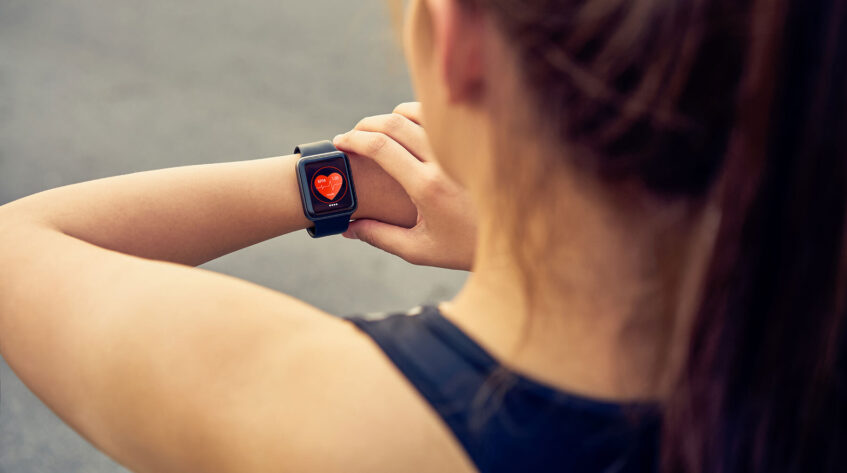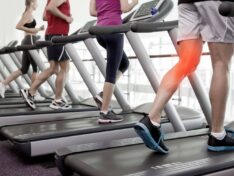Running Benefits: What Does Running Do to Your Body?
What does running do for your body? Research shows there are many benefits to running. Which benefits are accurate, and what does the data show?

Before you even start reading, I want to put in a caution: this article is going to make you want to drop everything and take up running, so don’t say I didn’t warn you!
Research continues to show that running is one of the best, most effective forms of exercise, and I’d go so far as to say, one of the most enjoyable too!
I’ve recently started running again after a break of a couple of years, and I can’t figure out why I ever stopped. My primary motivation for getting back into it was that I needed a form of exercise I could do in 30 minutes.
Running is ideal if you’re tight on time because you can step out your door and get started immediately -- no need to drive anywhere, no fancy equipment needed (unless you're looking to purchase a treadmill), and you get a good dose of fresh air at the same time.
I never thought I’d be one of those people who “run for their sanity,” but that’s precisely what has happened, and I hardly recognize myself.
And, all it took was for me to relax the performance pressure I was putting on myself and just get out -- even if it was for 30 minutes.
I’ve lost weight, gained muscle definition, learned to love hills, and, most importantly, I’ve carved out a little bit of sanity amid a busy, often chaotic schedule.
If you’ve read “Born to Run” (one of the most incredibly motivating books that will get you off the couch and lacing up your trainers, guaranteed!), you’ll be familiar with the thinking we are built to run.
Everything, from the shape of our hips and feet to the length of our legs (to name a few), makes it possible for us to run long distances (and enjoy doing it!)
But don’t take my word for it. Let’s look at what the research has to say about what running does to your body, and it might not be what you think!
1. It’s Actually Good for Your Knees
Let’s start with the biggest myth about how running impacts your body: knee health. Well, the results are in, and contrary to what you might have heard, it improves knee health.
What we’re talking about here is osteoarthritis in the knee.
A recent study found that the more participants ran, the less likely they were to experience knee pain or osteoarthritis. Some of the reasons for this are that running helps you lose weight (decreasing load on your knees), keeps your leg muscles strong (which supports your knees), and it strengthens your bones.
It’s important to note that we’re not talking about knee injuries that arise from over-training or poor running form, such as runner’s knee, patellar tendinitis, and Iliotibial band syndrome. You can read more about the effects of running on your knees.
2. Running Benefits Your Heart’s Health
This is a biggie -- cardiovascular disease is still, by far, the leading cause of death in the US. But the good news is, running can help!

And we’re not talking ultra-marathons here. According to the Journal of the American College of Cardiology, you can get many of the benefits and significantly reduce your risk of dying from cardiovascular disease even if you can only commit to running five minutes a day (at a slow speed of under six mph).
3. Running is Great for Your Brain’s Health
If you want a healthy brain, you need to get your legs moving. Why? Because running improves:
Cognitive Function
This includes your working memory as well as your ability to focus and switch between tasks. And the benefits are apparent at any age, from young children to seniors.
Stress Resistance
Running can physically change your brain, making it more resistant to stress. Many studies look at the relationship between running and a person’s ability to cope with stress.
The reason for this is possible that running stimulates an increase in the levels of neurotransmitters such as serotonin (the happiness hormone) and norepinephrine, as well as stimulating the brain to generate new neurons.
4. Running Gets the Body Working and Burning Calories
Running is one of the best forms of exercise to burn calories. A 30-minute run at a moderate pace (around 6 miles per hour) will burn about 270 calories. Of course, the calorie burn will depend on your pace, weight, and run duration.
5. Running Changes the Composition of Your Body
Body composition looks at the amount of lean muscle, organ, water, bone, and fat that makes up your body.

For most of us, the focus is on increasing the proportion of lean muscle and decreasing the level of subcutaneous fat, and running is ideal for both.
If you’re eating clean, running can help create a calorie deficit, thereby promoting fat loss through energy expenditure. This is because our weight is determined by the amount of energy that we put in, less the amount of energy that we put out (which happens primarily through exercise).
Weight gain tends to accelerate around the age of 40, which leads to other health complications such as diabetes, depression, and even obesity, which can be managed, in part, by regular running.
6. Running Helps Regulate Blood Sugar Levels
For type 2 diabetics, research by the University of Ottawa and the University of Calgary shows that regular running reduces the risk of diabetes-related heart attacks to 20% and kidney damage to 40%.
In addition, running can also improve the body’s sensitivity to insulin in diabetic patients.
7. Running is Good for Your Back
According to the American Chiropractic Association, an estimated 80% of the American population will suffer from back pain at some stage in their lives.
And it’s one of the most common reasons to visit a doctor. Running has been proven to help with chronic back pain primarily because it strengthens the muscles that support your spine as well as improves your spinal disks, which tend to be larger and contain more fluid if you are a runner.
Better disks are associated with more flexibility and less pain.
8. Running Strengthens Your Muscles
Because we’re talking about running, one of the most noticeable effects of running on your body is that it strengthens the muscles in your legs.

Even after a month or so of running, you’ll begin to notice increased definition as your thighs, calves, quads, and hamstrings get stronger, not to mention all the other leg muscles that are getting a great workout at the same time.
And it’s not just your leg muscles that benefit; running also strengthens your core muscles, including your rectus abdominis, obliques, transverse abdominis, and erector spinae. These core muscles are vital for supporting your stomach and stabilizing your spine, which makes it much easier to maintain a good posture.
9. Running is Excellent for Bone Health
This is important for everyone, but especially for women who are at increased risk of poor bone health and osteoporosis as they reach their 40s and 50s. In fact, one in three women will experience an osteoporosis fracture after the age of 50.
But keeping up with a regular running routine will improve your bone health, adding strength to your legs and back.
10. Running Keeps Your Body Alive
Is that a bit dramatic? Possibly, but it’s also 100% true. I touched on the importance of running for cardiovascular health, and the same holds true for other diseases, too.

Thirty minutes of aerobic exercise a couple of times a week makes you significantly less likely to die from any cause, including many different forms of cancer.
My Thoughts?
I've provided a nice round 10 number of running benefits along with a ton of data to support, and I could go on with many more reasons why running is good for the body.
Running has a profound impact on our bodies and has the potential to transform anyone's quality of life radically.
There is a myriad of physical benefits to running, and even just one or two should be enough motivation to unearth your trainers from the back of your closet (or wherever they’re hiding) and hit the road -- your whole body will thank you!
Tony Lee, MS, RD
Tony Lee, RD, MS, is a highly qualified and accomplished Registered Dietitian with a Master’s Degree in Nutrition Sciences. Tony brings over two decades of experience in dietetics, specializing in sports nutrition. Interests include studying all aspects of wellness, fitness, genetics, and peak health performance.














